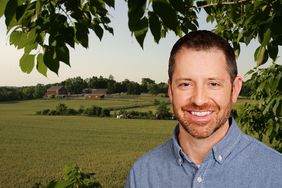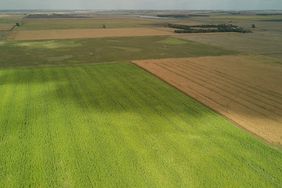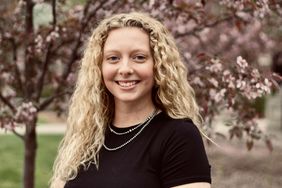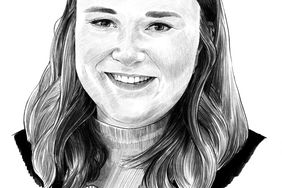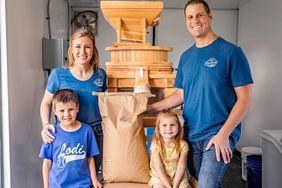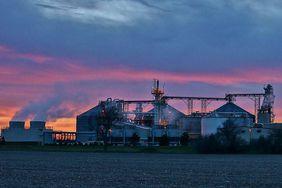:max_bytes(150000):strip_icc()/BrentHeadshot-3cbbee324858487184bcb64e0c7c3e33.jpg)
Iowa Farm Bureau Federation
Born into farming and drawn back to the family farm in Manson, Iowa, after years in college and in the workforce, Brent Johnson has found his groove as president of the Iowa Farm Bureau Federation.
Initially wanting to stay on his family farm, Johnson’s parents encouraged him to get an education, which led to an agronomy degree from Iowa State University. He has also started an independent crop consulting business.
After he was elected to a second term in December 2023, Johnson spoke with Successful Farming about his education and how it has helped him advance his family farm and how the adjustment to being an Iowa agricultural leader has gone.
SF: Has your degree in agronomy helped you during your time as a full-time farmer?
BJ: I think a lot of my agronomy training, along with experiences that I've had in the professional world, have really helped me to hone in where some fields need to be pushed further yet to maximize production. Identifying areas that are more sensitive and need a little more care, I’ve learned to either pull back some inputs they're environmentally sensitive to, or employ some technologies. Every field is different. Every part within every field is different. My agronomy management background helps to fine-tune it down into a subfield. What I've done in my past has helped us to modernize the farm.
SF: Would you encourage farmers to get more formal education if they can?
BJ: I think it's been tremendously helpful. I was that high school kid that all I wanted to do was farm. I didn't care what it was — that's what I wanted to do. It was my dad's persistence in getting an education — going somewhere else, getting some other experiences first — that I think really helped my ability to be a better farmer today. Perspective and perception are key to this. To have your backyard be your entire world isn't always the healthy thing to do [laughs]. I’ve had the experiences of literally traveling the world and seeing different models of agricultural implementation, different generations moving through different perspectives. To bring that back home and understand that Iowa is a very unique place in the world and grow an appreciation for what that is — even though every farmer in Iowa understands what corn, soybeans, pork, and beef mean to the state of Iowa. That’s actually a really small neighborhood on a global scale.
SF: How have you dealt with drought in the past couple growing seasons?
BJ: We have been pretty lucky. One thing that I think has helped: some of the management practices that we've implemented over the last few years have actually built in some resiliency within our soils. It’s created a larger buffer to be able to absorb and retain water, cycle nutrients. Everybody talks about the advancements of genetics and the tools that we've all got available to us, and that is 100% true. What's also true — and doesn't get talked about as much — is how much progress farmers have made over the last handful of years in learning, understanding, adopting, and adapting their practices and the way that they engage their operations.
SF: What have you been most proud of in your first couple of years as a full-time farmer and president?
BJ: I really give a lot of credit to the folks who are willing to trust me to stick both of these pieces together in my life. It's not always easy, but I think I'm a better farmer because of it. I think I'm a better president because I'm an active farmer. It was never my goal to replace being a farmer. I was able to get the vision forward to the staff that I am going to continue to be a farmer full-time, and I want to serve as our members’ president full-time as well. It took a little work, but everybody's been so supportive. I couldn't be more proud of everybody who's committed in all these relationships to make sure the priorities are the priorities on both sides of that equation.
:max_bytes(150000):strip_icc()/D3_6937-2000-cbc088ead7fc464f94999b4660b03bb7.jpg)
